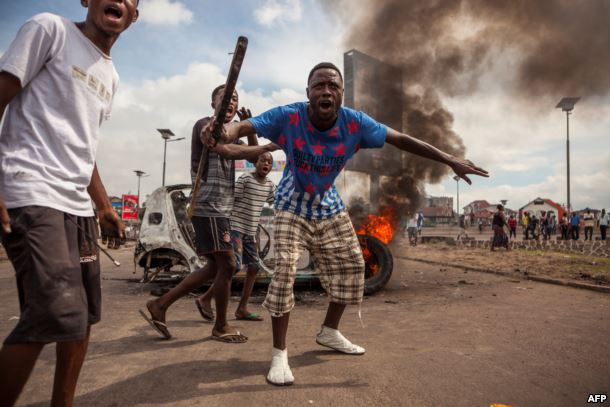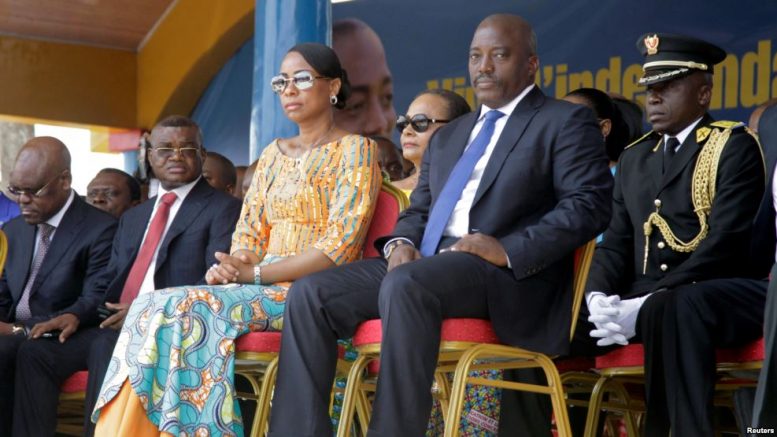A leading member of an opposition party coalition known as the “Rassemblement” is urging the Democratic Republic of Congo President Joseph Kabila to reach an agreement with the group and step down to allow a smooth transition. President Kabila’s official second and final term expires on December 19.
Freddy Mbuyamu Matungulu, leader of the opposition Congo Nabiso Party, (our Congo, in the local Lingala dialect) says opposition leaders forming the Rassemblement are meeting in the capital, Kinshasa, to decide the country’s transition process and steps forward after Kabila steps down on Monday.
He also says a court ruling that paves the way for President Kabila to remain in office after his term expires lacks credibility and support from the public.
“We are discussing the arrangement that should be put in place so that we are able to manage the country peacefully, until we get to the time when elections could be held,” said Matungulu.
“As you can see, the president’s political alliance is talking with us and I think it’s the recognition of the fact that that ruling doesn’t have sufficient force to allow him to continue to stay in power when his term comes to an end on December 19.”
His remarks came after the United States said it was deeply concerned about the potential for unrest and violence on or around December 19, when Kabila second and final term in office was to end with the inauguration of a democratically elected successor.
“We urge both the government and opposition to cooperate fully and in good faith with the DRC’s Conference of Catholic Bishops (CENCO) to finalize an inclusive agreement as soon as possible on the holding of elections, parameters for an interim government, and a peaceful transfer of power. We further urge the DRC government and opposition parties to refrain from any actions or statements that could incite violence or unlawful activity in the coming days and weeks,” read a statement by Mark Toner, Deputy spokesman at the U.S. State Department.
“At this critical moment in Congo’s history, we call on opposition party leaders, civil society representatives, ruling coalition officials, and leaders of the DRC government to renew their commitment to nonviolence and redouble their efforts to reach an inclusive agreement acceptable to all sides.”
Matungulu welcomed Washington’s call. He adds that the opposition coalition is cooperating with the Conference of Catholic Bishops. This, he says, is because the conference has the most appropriate framework which he says could lead to an agreement with the government to move the country forward.

Demonstrators gather in front of a burning car during an opposition rally in Kinshasa, DRC, Sept. 19, 2016
Matungulu also expressed concern about reports of a government directive seeking to force telecommunication companies operating in the country to block access to social media sites on December 18. Civil society and international human rights groups sharply condemned the move.
“This is one of the actions that the government is undertaking that is bringing our country backwards by 20 years when it comes to progress on the road to more political openness and democracy. And I think it is important that we find an agreement that will kind of reset the democracy clock in our country so that we can all live peacefully and the government then wouldn’t have to be taking the kind of restrictive measures that can unfortunately, only hurt the future prospects of this country,” said Matungulu.
“The president should understand that this country needs to move forward and this is the effort that we all are making, around the bishops of this country to try to find a peaceful settlement to this huge crisis that the country is going through.”
“We are hoping that we would be able to reach that agreement with the government so that the country can move very quickly to the elections and therefore the swearing in of the new president. We hope that this can be done in 2017 and I think if we are able to do that we would have solved most of the political problems we have in this country,” he added.

